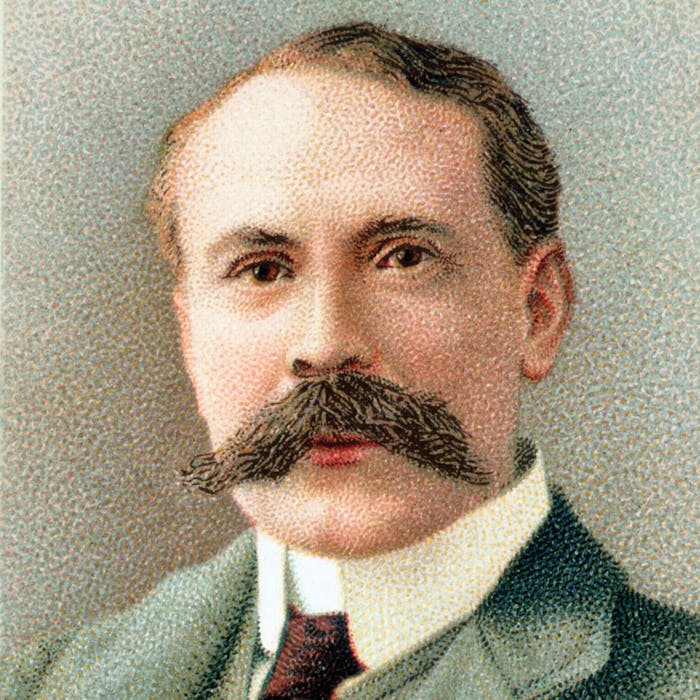
Edward Elgar - 'the typically English composer'
Sir Edward Elgar was an English composer born in 1857, many of whose works have entered the British and international classical concert repertoire, and particularly noted for his capturing of the atmosphere of England in Edwardian times.
Among his best-known compositions are the Enigma Variations, the Pomp and Circumstance Marches, concertos for violin and cello, and two symphonies. He also composed choral works, including The Dream of Gerontius, chamber music and songs.
Although often regarded as a typically English composer, most of Elgar's musical influences were from continental Europe. As he built his reputation as the focus of a new English musical genre, he felt himself to be an outsider, not only musically, but socially. In musical circles dominated by academics, he was self-taugh; and in Protestant Britain, his Roman Catholicism was regarded with suspicion in some quarters. He was also sensitive about his humble origins in the class-conscious society of Victorian and Edwardian Britain.
Edward Elgar was born in the small village of Lower Broadheath, outside Worcester and later moved to London, and became an orchestra violinist and teacher. When 29, he took on a new pupil, Caroline Alice Roberts, daughter of a senior British army officer, who inspired him both musically and socially, and supported him in his periods of doubt and introspection. They moved back to Malvern where he spent the rest of his life and was inspired by the local countryside, especially the Malvern Hills. His original home, The Firs, is now in the care of the National Trust.
Elgar struggled to achieve success until his forties, when after a series of moderately successful works his Enigma Variations (1899) became immediately popular in Britain and overseas. The subsequent choral work, The Dream of Gerontius (1900), is based upon a Roman Catholic text that caused some disquiet in the Anglican establishment at the time, but quickly became and remains, a core repertory work in Britain and elsewhere. His later full-length religious choral works were well received but are less well-known. He was appointed Master of the King's Musick in 1924.
Elgar has been described as the first composer to take the gramophone seriously. Between 1914 and 1925, he conducted a series of acoustic recordings of his works. The introduction of the moving-coil microphone in 1923 made far more accurate sound reproduction possible, and Elgar made new recordings of most of his major orchestral works and excerpts from The Dream of Gerontius.
In his fifties, Elgar composed a symphony and a violin concerto that were immensely successful. Elgar's music came, in his later years, to be seen as appealing chiefly to British audiences and went out of favour for several decades, though it has much revived in the last 50 years. Some of his works have been taken up again internationally, but the music continues to be played and appreciated more in Britain than elsewhere.
Further reading
Links to external websites are not maintained by Bite Sized Britain. They are provided to give users access to additional information. Bite Sized Britain is not responsible for the content of these external websites.
